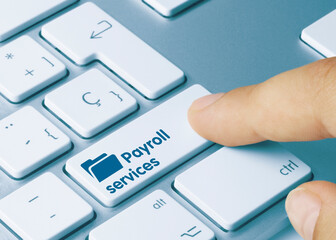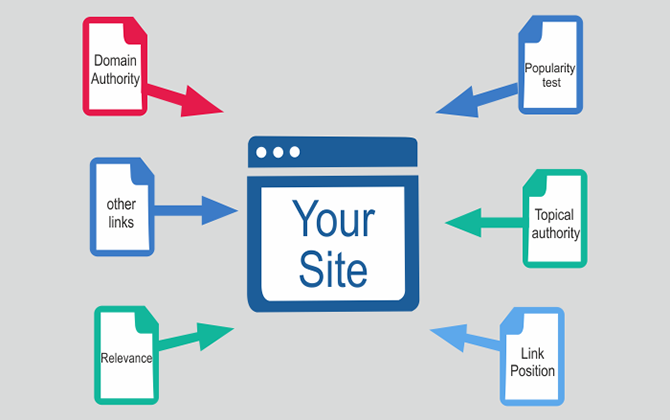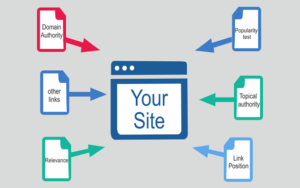Payroll administration involves paying employees, tax deductions and keeping records of payroll transactions. A business can do this in-house or hire a payroll service provider for time savings and compliance support.
Payroll administrators must have good numeracy and literacy skills to perform various tasks. They also need to be flexible and able to deal with problems that may arise in their job. Contact J. Gregory PEO for professional help.
Payroll calculation is the process of determining the compensation paid to employees for work completed in a pay period. It involves calculating wages, deductions and taxes to arrive at an employee’s net pay. It is a complex and regimented process that must be followed exactly to ensure accurate payments, tax withholdings, and compliance with local, state and federal laws. Inaccurate payroll calculations can lead to administrative issues that put an additional burden on your HR and finance team and cause frustration for your employees.
The first step in payroll calculation is to gather all the relevant information, including an employee’s basic details, their attendance and performance data, and any variable components that will be part of their salary. Then, the payroll administrator will calculate their gross and net pay. A gross pay will include all the components such as salary, allowances, PF, LTA, and performance bonus. A net pay will be derived from the gross salary after all deductions and taxes have been subtracted. Once the payroll is calculated, the administrator will then send it to each employee through their preferred mode of payment. This may be a cheque, cash, or electronic transfer. It is important to distribute the paychecks on time every month so that employees have a regular income and can manage their finances better.
It is also important to keep a record of all payroll processes. This will help in resolving any discrepancies that may arise in the future. In addition, it will also help in complying with the various payroll laws. Moreover, it will also serve as proof of employment in case an employee has any problems with their salary.
Payroll administration is a complex task that requires a high level of skills and knowledge. Payroll administrators must have excellent numeracy and literacy skills, as they often deal with large volumes of numbers and must be able to quickly interpret and understand complex data. They must also be able to communicate effectively and collaborate with other departments. They must also be able to respond to any questions or concerns from their employees.
Payroll processing
Payroll processing is a crucial part of payroll administration, and it involves feeding employee wages into the company’s accounting or ERP system. It also includes calculating taxes and ensuring that they are properly withheld. In addition, it may involve processing other deductions, such as union dues or health insurance premiums. It can also involve submitting payroll taxes to the relevant government agency and filing quarterly, half-yearly, and annual reports.
The precise activities involved in payroll processing vary according to the specific needs of a company or organization. For example, some firms include commissions in employee salaries, while others process overtime payments or adhere to specific employment laws. It is important to maintain accurate records of all paychecks and remittances in order to avoid penalties and keep track of all the required deadlines.
In addition to processing payroll, payroll administrators must be able to handle any problems that arise. These issues can range from simple mistakes to complicated statutory compliances. For instance, if an employee’s direct deposit doesn’t go through or a deduction is incorrect, the payroll administrator must be able to resolve the issue quickly and accurately.
A payroll administrator must be familiar with all the relevant company documents and policies, including the employee handbook and compliance requirements. They must be able to identify any discrepancies and work with other departments to correct them. Additionally, they must be able to work under pressure and meet tight deadlines.
Finally, they must be able to work with a variety of software programs and databases. They must also be able to communicate effectively with employees and other managers. Many companies outsource their payroll functions to other companies that specialize in this area. These companies typically provide a range of services, including HR, IT, and accounting support.
Choosing the right payroll processor is essential for an effective payroll administration system. There are many options available, from cloud-based solutions to traditional desktop systems. The key is to find a solution that is easy to use and can integrate with other business processes. It’s also important to look at the price-to-performance ratio and whether it will help you achieve your goals.
Staff administration
Staff administration is an important part of payroll processing. It involves ensuring that all employees are paid accurately and on time. It also includes tracking hours, managing deductions, and calculating taxes. Ideally, the staff administrator will have good organizational skills and strong attention to detail. This is an essential role in a company, and it requires an efficient approach to handling multiple tasks.
The staff administration process begins when the company determines how much money it owes to its employees. This amount is then divided among the employees and transferred to their bank accounts or other designated channels. Typically, the payroll department will keep records of this information for future reference. It is important that the staff administration process is accurate and complete, as any errors can lead to monetary losses.
Another important aspect of this process is ensuring that the company adheres to employment laws. This includes ensuring that employee wages and deductions are in accordance with federal and state regulations. Additionally, the payroll administration team must be aware of any special considerations that may apply to workers in certain industries or locations.
There are several software options available to manage the staff administration process. Some are more affordable than others, and some offer additional features that can help your business save money. Many companies also offer free trials to help businesses decide which solution is best for them. When choosing a software solution, look for one that is user-friendly and easy to navigate. Make sure that the system can handle large amounts of data and integrate with existing systems. It should also be compatible with mobile devices and cloud-based systems.
In addition to the above-mentioned tasks, administrative staff members must prepare all department reports, schedule conference calls, and provide customer service. They must also be familiar with the company’s policies and documents. This job requires someone who is proficient in spreadsheet and data entry, as well as has excellent communication skills. Staff administrators also prepare and distribute employee paychecks, calculate tax withholdings and deductions, maintain the payroll database and ACH transactions, and coordinate with HR when it comes to communicating updates or resolving issues.
Payment channel
Payroll administration involves paying employees, depositing employment taxes and maintaining records of these transactions. While these tasks can be done manually, it is much more efficient to use payroll processing software. This can save time and reduce the chance of errors, which can cost the business money in fines or lost productivity. It also ensures compliance with tax laws and labor laws. Some businesses choose to handle their payroll in-house, while others opt for a payroll service provider.
A payment channel is a system that allows two users to send funds in a bidirectional way. It uses a series of transactions, called multi-signature transactions, to secure payments and control access to funds. It is a good choice for businesses that need to manage multiple currencies or deal with a variety of different payment types.
Using a payment channel can help you avoid costly errors and improve your business’s cash flow. It can even improve your reputation by reducing the amount of time it takes to process paychecks. Payroll management is a vital component of any successful business, but it can be challenging to manage in-house. Many companies choose to outsource their payroll operations for optimal time savings and compliance support.
It is important to note that the payment method details passed between Payroll and Accounts Payable must match exactly. If you don’t, you may end up with duplicate accounts that cause errors when reconciling payments. You can avoid this by reviewing the Payroll source bank account details before you define them in Accounts Payable.
You should also consider using separate payroll accounts for each employee. This will allow you to easily identify which accounts are being used for payments, and it will help you maintain accurate accounting records. It will also prevent overlapping account entries, which can lead to problems with your financial statements.
In addition to payroll, a payroll processing service can offer other benefits, such as tax filing and filing services. They can file federal, state and local taxes, as well as Social Security and Medicare deductions. They can also provide employee self-service features, such as online pay stubs and W-2 forms. In addition, they can provide time and attendance management solutions, including a mobile app for easy tracking of employee work hours.







